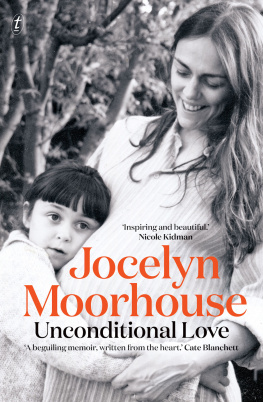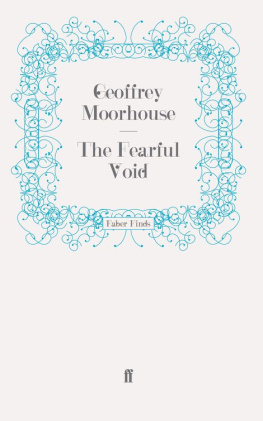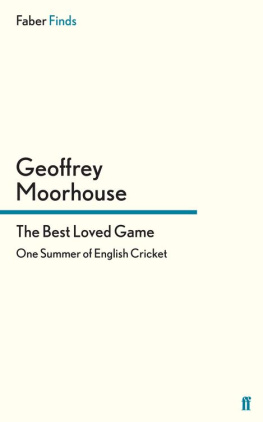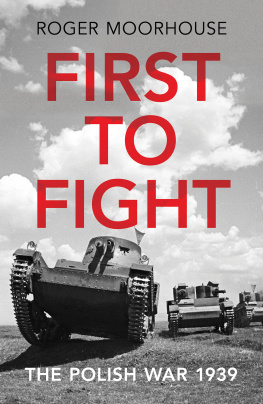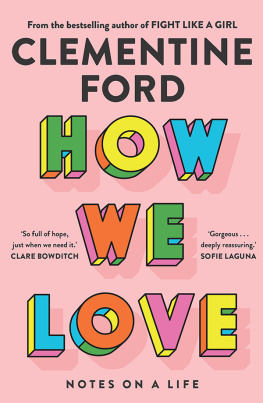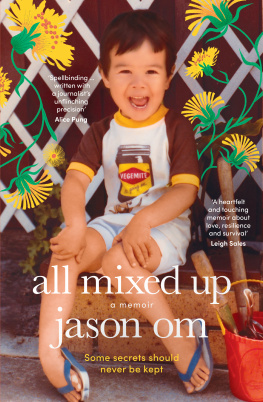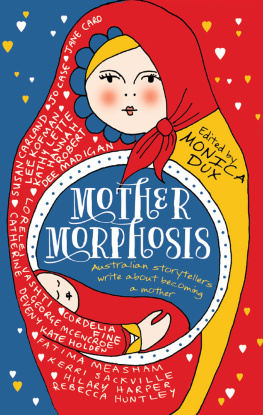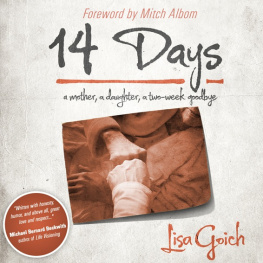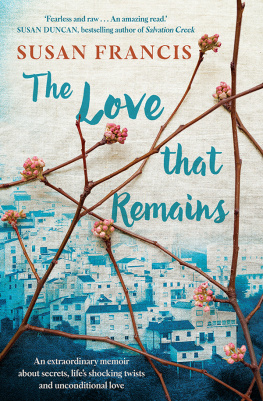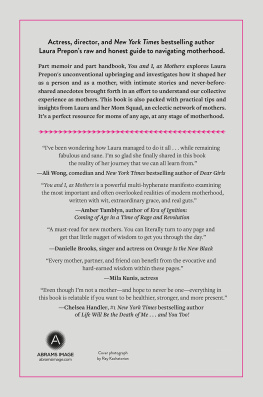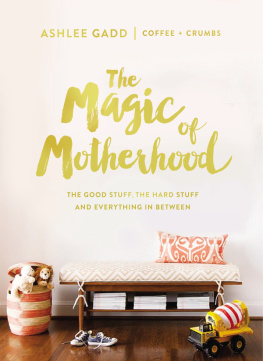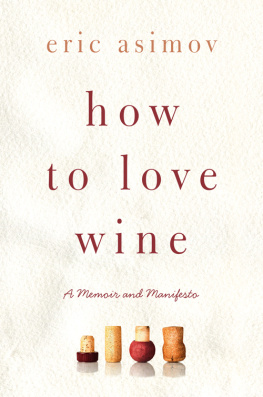

Jocelyn Moorhouse has a successful career as a gifted scriptwriter and film director, as well as a maintaining a marriage and a family of four children. How did she do it? Her memoir is a moving story of growing up with adoring parents and siblings. She knew early on that she wanted to be a filmmaker, and her dreams were encouraged by her family and by her teachers.
Meeting P.J. Hogan, becoming parents and filmmakers together was a turning point. But when they discovered that two of their children were autistic, Jocelyns life turned upside down. In Unconditional Love, she talks from the heart, with humour and intelligence, about her fears for her children, the highs and lows in her international career, about Hollywood and home, and about her love for what she does bestfilmmaking and motherhood.
For Spike, Lily, Jack and Maddy
In the end, well all become stories.
MARGARET ATWOOD
My mother had a big green typewriter. It sat on our dining-room table, along with piles of notes and typewritten pages. We kids were all told not to touch these pages, because Mummy had a system we were not to disrupt. The machine had a little bell that pinged when the carriage reached the edge of the paper. This was a cue for Mum to swipe a silver lever that would shift the page up and slide the carriage back to its starting position. Then she would start typing the next line, the keys clickety-clacking at a furious pace.
Mum was always writing something: letters, stories, even radio plays. Sometimes, when I was a teenager, Mum would show me poems she had written about me, but I would cringe. I was still childish enough to feel awkward about my mothers overflowing emotions. I loved the fact that she loved me, but that knowledge wasnt new. Now I want to slap myself for being so ungrateful. Mum stopped showing me her poems, but she never stopped writing them. After she died, I found boxes and boxes of her writing, including over a hundred poems about her children.
Now, here I am, writing a book that I hope my children will read one day. I want to write about being a mother, and raising four extraordinary children. Being their parent is like having an intense love affair with four people at the same time. And I want to write about making movies and writing screenplays.
I come from a long line of storytellers. My mothers grandfather, Denis Tobin, could not read or write, but he would gather his grandchildren around him at the end of each day, and fill their heads with marvellous stories. The best stories were the ones from when Denis was a child on his familys sheep station. He would have to sleep outside overnight to protect the familys precious flock from the dingoes. One night he got so cold he decided to grab a sheep to keep warm. The ensuing wrestling match between boy and sheep was so wild that the entire flock fled in terror into the forest. Mum used to tell that story, and many others, to my older brother Greg, my younger sister Kathy and me, carrying on the tradition and keeping us enthralled for hours.
We all carry stories in us. The stories our loved ones share with us about their lives give us clues to who they really are. I was afraid I would never have any stories to tell when I grew up. Nothing has happened to me, I complained to Mum.
Dont worry, Jossy, she reassured me. When you grow up, things will happen that you can turn into stories.
Its true. A lot of things have happened, and I do have stories to tell.
By the age of eighteen, I loved photography, music and storytelling with an obsessive passion. Thats when it dawned on me that filmmaking could be a wonderful way for me to combine all my passions. It felt like a piece in the puzzle had dropped into placethis will be my life.
At twenty-three I fell in love with another young filmmaker, P.J. Hogan. Five years later we married. We had a baby boy, made some movies together in Australia, and got invited to make movies in Los Angeles. Hollywood! The real thing! Palm trees, beaches, glittering premieres. We lived in the USA for fifteen years. During that time, three more children were born. So many dreams came true, while others came crashing down. Two of our four kids are autistic. Our family shifted into what felt like a parallel universe. Everything looked the same, but life had altered irrevocably. Filmmaking took a back seat while we searched for a cure for autism.
We never found one. And thats okay. What began as a quest to help our kids be normal evolved into a journey of acceptance, understanding and love. Thats the story I want to tell.
Love involves a peculiar unfathomable combination of understanding and misunderstanding.
DIANE ARBUS
In addition to being a writer, Mum was a shutterbug. She was the daughter of a professional photographer. She always had a camera with her. Her love of images must have been in her blood. And she passed it on to me. She taught me how to use my first still camera. Then she taught me how to use her Super 8 movie camera, and how to edit the footage. Its all her fault I became a film director.
My parents were completely in love for their entire sixty-year marriage. They wrote to each other whenever they were apart. Their letters were love letters, funny and warm. My mother also kept diaries. In all, I have found thousands of pages of her writing.
Jack Moorhouse and Denice Tobin-Wood met on a tennis court in Melbourne in 1950. Dad and his best pal, David, were playing doubles with Davids girlfriend Dierdre. She had brought along a friend from work, Denice, a teller at the Union Bank. Dad loved to tell the story of how, every time Denice hit the tennis ball, the exertion would cause her undies to slip down a little.
The elastic was loose! Mum would always shout when he got to this part of the story.
Jack, a handsome young accountant, couldnt help noticing Denice constantly hitching up her undies under her tennis dress. He thought it was undignified and completely adorable. Denice was an outgoing country girl, a bit of a tomboy, with her black curls cut short, and a beautiful smile. Jack was a shy boy from Middle Park who was very smart. They were immediately smitten. They used to go to the St Kilda Town Hall and dance to local bands playing hits by Perry Como and Bing Crosby. When rock-and-roll arrived in the mid 1950s, they embraced it and became mad twisters!
They married in 1951. She was only twenty; he was twenty-six. He used to lovingly refer to her as his child bride, even when she was in her seventies. Jack was conservative, straight-laced. Denice was spontaneous, adventurous.
For their honeymoon, Jack and Denice spent one night in the Blue Mountains, then drove, with their best man David, all the way back to Melbourne so Jack could return to his job at the Union Bank. They managed to buy a small weatherboard house in Croydon, then an outer suburb on the edge of the bush, and lived there with hardly any furniture, completely happy. It took them a while to conceive. Eventually, my brother Greg was born in 1957. He had black curls and impossibly long eyelashes. I was born in 1960, and eighteen months later came my baby sister Kathy.

Denice had been born during the Great Depression. Her father, Archibald Virtue Gilmour Wood (what a name!), was a journalist and photographer, born and raised in Brooklyn, on the Hawkesbury River. Her mother, Mary Mid Tobin, was a seamstress, the daughter of Bathurst sheep farmers. Mid was twenty-nine, working for her dressmaking aunt in Darlinghurst, when she met Archie, ten years younger than her. A fan of fashion, Mid had chopped off her waist-length hair into a sleek bob and embraced the life of a flapper, as had her sisters Lou and Alma. Her other sister, Nellie, was studying music at the Conservatorium in Sydney. Besotted with Mid, Archie married her in 1926, when he was twenty. They decided to merge their last names to create a new surname for them both, Tobin-Wood.
Next page
